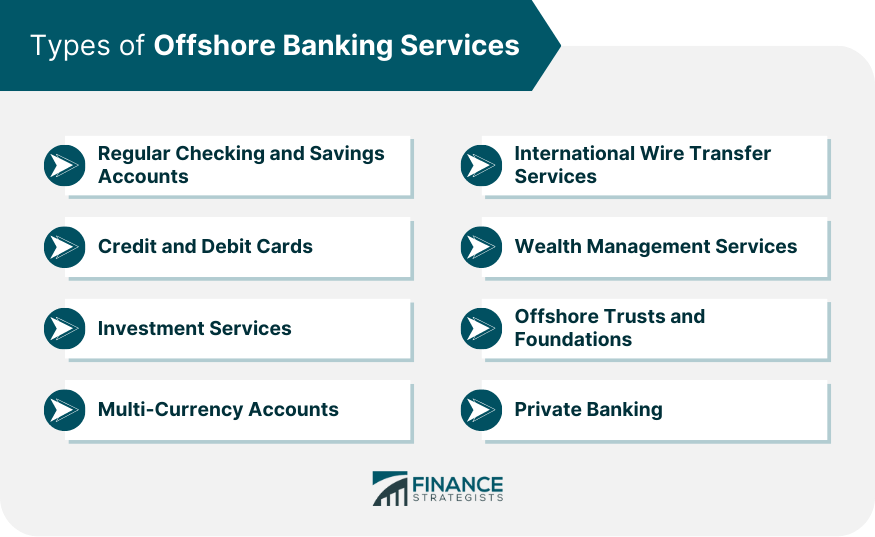Why Reputation of Jurisdictions Matters in Offshore Company Formations
Exactly How Offshore Firm Formations Work: A Detailed Review for Entrepreneurs
Offshore firm formations can provide considerable advantages for entrepreneurs looking for tax obligation optimization and asset security. The process involves several crucial steps, beginning with mindful territory option and extensive documents preparation. Involving professional solutions is important for compliance. Many ignore the ongoing duties that comply with first registration. Understanding these complexities can make a significant difference in leveraging offshore possibilities effectively. The next actions are necessary for long-lasting success.
Understanding Offshore Companies: What They Are and Why They Issue
The principle of overseas business might appear facility, recognizing their fundamental nature and significance is important for both individuals and services looking for to maximize their economic methods. Offshore firms are entities signed up outside the individual's country of residence, frequently in territories that use positive regulatory settings. These businesses can supply numerous advantages, such as tax obligation optimization, property protection, and enhanced personal privacy.
For business owners, developing an overseas firm can help with global trade, lower operational expenses, and broaden market reach. In addition, offshore business often enable streamlined conformity with global regulations. Individuals may likewise utilize offshore structures to guard personal possessions from political or economic instability in their home countries. Inevitably, the allure of offshore firms depends on their capacity to boost economic flexibility and supply strategic advantages in a significantly interconnected international economy - Offshore Company Formations. Understanding their operational structure and benefits is important for making educated decisions
Picking the Right Territory for Your Offshore Business
Choosing the ideal jurisdiction for an offshore company is critical for making the most of tax advantages and ensuring conformity with regional regulations. Various jurisdictions supply differing tax obligation incentives and governing settings that can greatly influence service procedures. As a result, a cautious analysis of these elements is vital for informed decision-making.
Tax Obligation Advantages Review
When thinking about the establishment of an overseas firm, understanding the tax advantages connected with different jurisdictions is essential. Various places supply distinct benefits, such as low or zero corporate tax obligation rates, which can substantially enhance productivity. Some territories provide tax obligation motivations for certain sorts of organizations, drawing in entrepreneurs seeking minimized tax obligation liabilities. Furthermore, specific countries enforce favorable tax obligation treaties that minimize double taxes on worldwide income, making certain that companies retain more profits. The option of territory likewise impacts value-added tax obligation (VAT) and various other local tax obligations. Entrepreneurs need to assess these factors carefully to choose a place that aligns with their business goals, optimizing tax obligation efficiency while continuing to be compliant with global policies.
Regulatory Setting Considerations
Picking the best territory for an overseas business requires a complete understanding of the governing setting, as different countries enforce varying levels of conformity and administration. Entrepreneurs need to assess elements such as legal structures, tax obligation guidelines, and reporting commitments. Territories like the British Virgin Islands and Cayman Islands are commonly favored for their business-friendly laws and marginal reporting needs. On the other hand, some nations might impose stringent regulations that might complicate procedures and increase prices. In addition, the political security and credibility of a territory can influence the long-lasting feasibility of the overseas company. Subsequently, mindful consideration of these regulatory aspects is important to assure that the chosen jurisdiction aligns with the company's critical goals and operational needs.
Preparing the Required Documentation
Preparing the essential documentation is an essential action in the offshore business formation process. Entrepreneurs must gather various legal and recognition papers to facilitate their company's establishment in a foreign territory. Commonly, this consists of a detailed business strategy describing the firm's objectives and operational techniques. In addition, individual recognition papers, such as passports or vehicle driver's licenses, are called for from the firm's shareholders and supervisors.
In several instances, evidence of address, like utility expenses or financial institution statements, is essential to verify the identities of the included celebrations. Additionally, certain types dictated by the territory, including application for registration, have to be finished accurately. Some jurisdictions may likewise need an affirmation of the nature of service tasks and conformity with neighborhood policies. Extensively preparing these documents ensures a smoother enrollment process and aids minimize potential hold-ups or complications, eventually setting a solid foundation for the overseas entity.
Engaging Expert Providers for Offshore Development
Engaging expert solutions in offshore formation can greatly improve the performance and efficiency of the process. Business owners often face complexities that can be frustrating, making experienced assistance important. Specialist firms focusing on overseas formations provide a wide range of understanding regarding territory selection, company framework, and neighborhood market problems.
These experts can aid in drafting essential paperwork, making sure precision and conformity with particular demands. They also aid simplify interaction with regional authorities, lowering the likelihood of misconceptions or delays. Furthermore, expert solutions can use insights right into tactical advantages, such as tax obligation benefits and asset defense, tailored to the entrepreneur's particular needs.
Navigating Regulatory Conformity and Legal Requirements
Comprehending the regulatory landscape is important for business owners starting on overseas firm formations. Conformity with regional regulations and worldwide guidelines is vital to stay clear of legal pitfalls. Each territory has specific needs concerning business registration, reporting, and taxation, which should be completely looked into.
Business owners must acquaint themselves with the policies regulating corporate framework, ownership, and operational methods in the picked offshore area. In addition, anti-money laundering (AML) and understand your consumer (KYC) guidelines frequently apply, calling for appropriate paperwork and confirmation procedures.
Involving with attorneys who concentrate on offshore services can offer important guidance on navigating through these intricacies. Making sure compliance not only shields the firm from possible legal concerns however also enhances reliability with capitalists, partners, and regulators. By adhering to the recommended lawful frameworks, entrepreneurs can successfully take advantage of the benefits of offshore firm formations while reducing dangers related to non-compliance.
Establishing Financial and Financial Accounts

When an ideal bank is identified, entrepreneurs usually need to prepare and send numerous documents, consisting of proof of identity, service registration papers, and a description of the intended company activities. (Offshore Company Formations)
Some banks may additionally require a minimum deposit to open an account. Business owners ought to be prepared to respond to inquiries concerning the resource of funds and business operations. By completely recognizing the banking landscape and conforming with the financial institution's demands, business owners can safeguard their overseas business has seamless accessibility to essential economic services for reliable operation.
Maintaining Your Offshore Firm: Continuous Obligations and Finest Practices
Maintaining an overseas firm includes several ongoing obligations that are essential for compliance and functional integrity. Key elements consist of sticking to annual conformity requirements, maintaining exact economic documents, and comprehending tax obligation responsibilities. These aspects are essential for guaranteeing the company's longevity and legal standing in its jurisdiction.
Annual Compliance Demands
While developing an overseas company provides many benefits, it also involves recurring duties that can not be neglected. Yearly conformity needs vary by territory however typically consist of sending financial statements and see page yearly returns to local authorities. Companies have to also pay yearly costs, which can include enrollment revivals and taxes, depending upon the area. Additionally, numerous jurisdictions require maintaining a regional representative and an authorized workplace. Failure to abide with these regulations can lead to fines, including penalties or even dissolution of the company. Entrepreneurs must additionally recognize any modifications in neighborhood legislations that may affect their conformity commitments. Staying educated and arranged is vital for preserving the benefits of an offshore company while satisfying legal obligations successfully.
Maintaining Financial Records
Compliance with annual demands is just part of the continuous obligations related to overseas business monitoring. Preserving exact monetary records is important for assuring transparency and liability. Entrepreneurs should systematically record all purchases, consisting of income, expenditures, and properties. This practice not only help in interior decision-making however additionally prepares the firm address for prospective audits from governing authorities.
On a regular basis updating financial statements, such as revenue and loss accounts and equilibrium sheets, is necessary for tracking the business's financial wellness. Making use of audit software program can improve this procedure, making it less complicated to generate reports and preserve compliance. Furthermore, entrepreneurs ought to think about seeking specialist accounting solutions to ensure adherence to local regulations and finest methods, consequently safeguarding the stability and reputation of their offshore operations.

Tax Obligation Commitments Overview
Guiding with the intricacies of tax commitments is vital for the successful administration of an overseas company. Business owners should recognize the tax laws of both their home nation and the territory where the offshore entity is developed. Compliance with neighborhood tax laws is important, as failure to adhere can result in charges or lawful concerns. On a regular basis submitting needed tax returns, also when no tax obligation may be owed, is commonly required. In addition, maintaining current and exact economic records is vital for demonstrating conformity. Seeking advice from tax obligation professionals knowledgeable about international tax obligation law can assist navigate these commitments efficiently. By executing ideal practices, business owners can assure that their offshore operations continue to be legitimately certified and financially feasible.

Regularly Asked Concerns
For how long Does the Offshore Business Development Refine Typically Take?
The overseas company formation procedure usually ranges from a few days to numerous weeks. Aspects influencing the timeline consist of territory, documents requirements, and responsiveness of lawful and financial institutions click reference entailed in the setup.
What Are the Expenses Connected With Maintaining an Offshore Business?
The prices linked with maintaining an overseas company can differ widely. They commonly include annual registration costs, conformity costs, accounting services, and possible legal charges, relying on the territory and specific business activities involved.
Can I Open Up a Personal Savings Account for My Offshore Business?
Opening up an individual checking account for an overseas company is generally not permitted. Offshore accounts must be business accounts, reflecting the firm's activities, therefore abiding by laws and making sure appropriate economic management and lawful accountability.
Exist Restrictions on Foreign Possession of Offshore Business?

What Takes place if I Fail to Adhere To Offshore Rules?
Failure to adhere to overseas laws can result in serious fines, including significant fines, loss of company licenses, and prospective criminal costs. Additionally, non-compliance may cause reputational damage and troubles in future company operations.
Offshore business are entities signed up outside the person's country of home, frequently in territories that provide beneficial regulative settings. Choosing the proper jurisdiction for an offshore business is critical for maximizing tax benefits and making certain compliance with regional guidelines. When taking into consideration the facility of an overseas firm, understanding the tax benefits associated with different jurisdictions is crucial. Choosing the ideal territory for an overseas firm calls for a comprehensive understanding of the regulative setting, as different nations impose differing degrees of conformity and administration. Furthermore, the political security and credibility of a jurisdiction can influence the lasting feasibility of the overseas company.